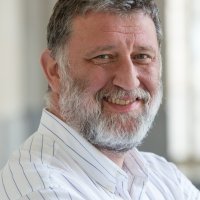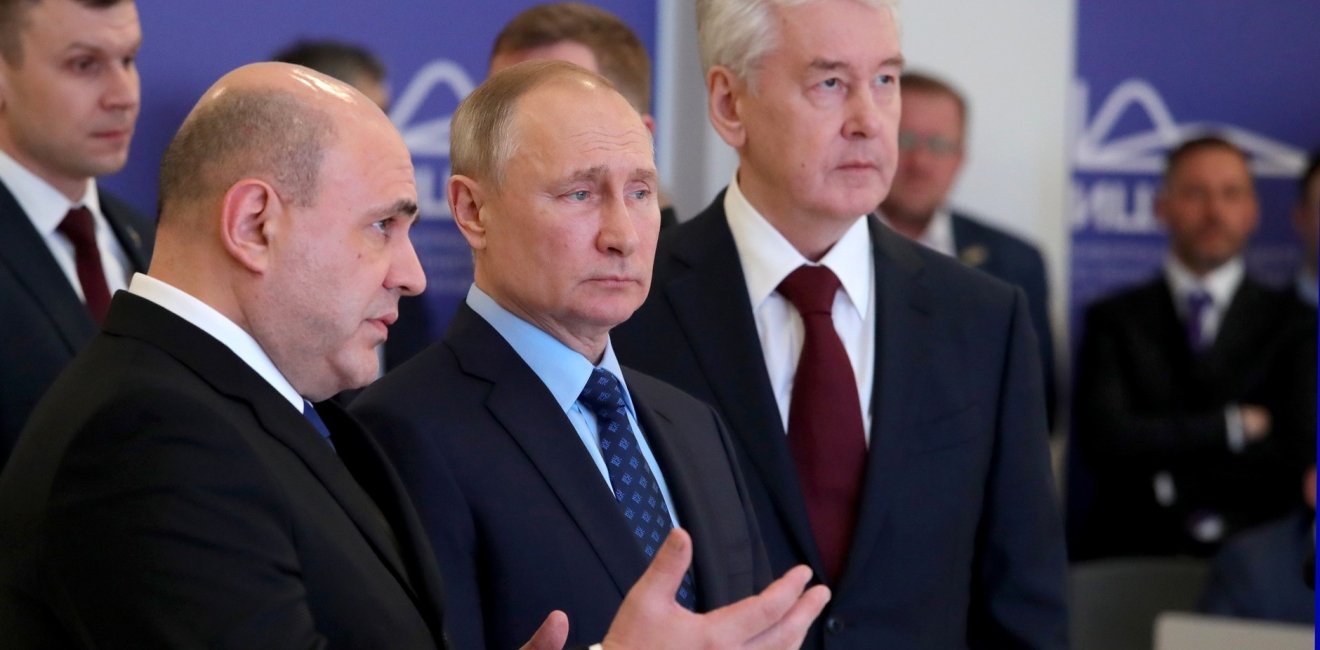
A blog of the Kennan Institute
BY SERGEY PARKHOMENKO
“What does the domestic situation in Russia look like compared to other countries amid the COVID-19 pandemic?” a colleague from Austria asked me ahead of an international online discussion involving journalists from over a dozen European countries. “Is there anything that makes Russia special?”
While ticking off my answers I realized that this straightforward question called for an extensive response. There are, I think, three points to make about the Russian leadership’s reaction to the pandemic.
First, right before the pandemic struck, the Kremlin dismantled the constitutional order. Introduced in early March, the Kremlin’s constitutional amendments have demeaned and destroyed the Russian constitution as the law of the land and the foundation of the country’s legal system. Russia’s citizens have realized that the people in power can amend this cornerstone document in the most eccentric ways and subject it to the most barbaric, preposterous, and absurd manipulations. The document’s authority has been reduced to nothing.
(Please see the Russia File’s coverage of the constitutional amendments here, here and here.)
Constitutional changes vitiate any discussion of the legal basis for the authorities’ decisions of meaning. Whether a decision is lawful or unlawful is hard to tell. Within what framework, and measured how, exactly?
The Russian government is about to make difficult and largely unprecedented policy decisions. Yet no legal norms, no obligations to respect human rights or bear responsibility for the lives and well-being of the country’s citizens, restrict the government’s discretion. It is now not accountable to anyone for anything and exists outside any legal framework. Everything is permitted and there are no obligations.
Second, most countries that are already suffering the consequences of the pandemic, and even more so the consequences of measures taken to counter the pandemic, seem so badly affected exactly because of how developed they are and how much value they assign to human life and well-being. In a way, we see a popular saying come true: The bigger you are, the harder you fall. The more prosperous, successful, and protected the citizens of a given country were, the more vulnerable and disappointed they now feel and the higher estimate they put on their damages.
In the meantime, not much has changed in the countries governed by cruel and unresponsive regimes. Their citizens did not have that much to lose in the first place. They are as intimidated and deprived of basic rights as before the coronavirus pandemic, their daily hardships are as grave as before, their movements are still restricted, and their future remains bleak and obscure.
This will come as no revelation. Still, there is one more crucial, and overlooked, aspect to this story.
In recent decades, few advanced nations have seriously engaged the idea that dictatorships might have some advantages over democracies. There are, of course, those who call for tougher leadership and greater government involvement in the economy. There are also those who want softer leadership and less government intervention. Different groups may support different approaches to matters of governance. But nowhere—not even in countries like Hungary or Argentina, whose leaders are infringing on some of their nations’ democratic norms—has there been a debate over whether it might make sense to cancel this whole “democracy farce” and install a “nice and reliable” totalitarian system once and for all.
But Russia has been engaging in such a debate. Russian society has not come to a consensus on whether it truly benefits from democracy or even on whether a republic is an appropriate form of government for our country. In Russia, there have been enough people ready to defend the nation’s “special path” to the point of advocating for a full-fledged autocracy. Not all of those advocates have dared to call it such, but effectively this is precisely the argument they have been trying to advance.
It is important to understand this context in order to make sense of the recent talking points related to COVID-19:
“Look at China! They have already overcome the epidemic,” say some.
“Look at Cuba! They are helping their neighbors and providing medical aid and masks to those in the Western Hemisphere who made the mistake of placing trust in the delusions of democracy,” say others.
“Look at North Korea! Have you heard of a coronavirus outbreak there? No! That is because it did not happen. Everyone is healthy.”
“And now take a look at those lame Western democracies. Britain! Italy! Germany! Spain! And especially the United States! Just look at the United States! Do you like what you see? I told you so!”
If there is a country among those relatively developed nations seriously affected by the coronavirus where the pandemic is capable of turning the public debate definitively toward totalitarianism, that would be Russia.
And third, at the time the global pandemic struck, Russia was seen by many in the world as a rogue state. Russian leadership spent the past decade shamelessly violating international law, starting new wars, and getting involved in ongoing ones. The Russian state has interfered in the democratic processes in several developed countries and has supported extremist and destructive political actors there, wreaking havoc and discrediting democratic institutions. Russia’s authorities have facilitated the establishment or preservation of dictatorial regimes in several developing countries, funded terrorist organizations, tried to organize coups d'état in countries traditionally considered to be part of its area of interest and sent security service officers to organize terrorist attacks on some of the friendly nations’ territories. The international community punished Russia for this (not just the leadership, but all of Russia and its citizens) by imposing economic and political sanctions, downgrading Russia’s membership in some international organizations and expelling it from others.
The chaos, confusion, and, at times, full-scale panic caused by the COVID-19 pandemic created a favorable context for attempts by Vladimir Putin and his circle to shed the status of an international malefactor. (I mean this in a literal sense, as Russia headed by these people has on multiple occasions flouted international law with impunity.) Now President Putin is trying to use the coronavirus pandemic to divert everyone’s attention from everything he and his cronies have done over the past years. He is trying to create a situation where others, out of despair and confusion, will forget, forgive, and write off everything he has done, and will learn to tolerate his methods.
This makes Russia quite possibly one of the very few nations trying to profit from the global disaster. This political manipulation is typical of Russian authorities in the domestic arena and is now spilling over into international politics.
This is my view of the three distinctive features of the Russian state in the midst of the coronavirus pandemic. It might be possible to find another country where one of those things is taking place, where one of the three factors is relevant. But I feel sure there is no other country in the world where all three of these elements coexist at the same time.
The opinions expressed in this article are those solely of the author and do not reflect the views of the Kennan Institute.
Author

Journalist, publisher, organizer of civic projects

Kennan Institute
After more than 50 years as a vital part of the Wilson Center legacy, the Kennan Institute has become an independent think tank. You can find the current website for the Kennan Institute at kennaninstitute.org. Please look for future announcements about partnership activities between the Wilson Center and the Kennan Institute at Wilson Center Press Room. The Wilson Center is proud of its historic connection to the Kennan Institute and looks forward to supporting its activities as an independent center of knowledge. The Kennan Institute is committed to improving American understanding of Russia, Ukraine, Central Asia, the South Caucasus, and the surrounding region through research and exchange. Read more

Explore More in The Russia File
Browse The Russia File
Chechnya as a Model of Modern Russia

Russia’s Indigenous Communities and the War in Ukraine

Gas and Power in a Changing US–Russia Relationship

